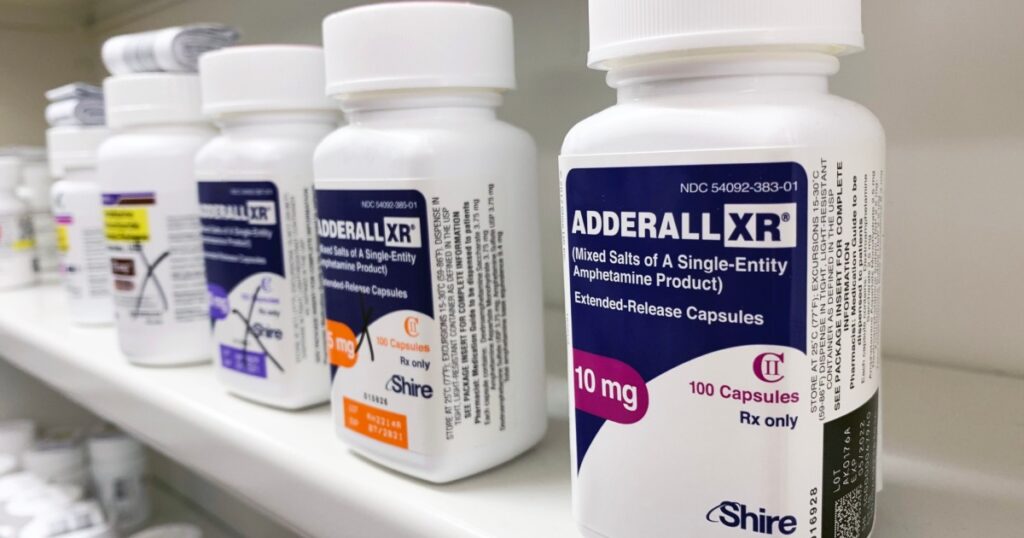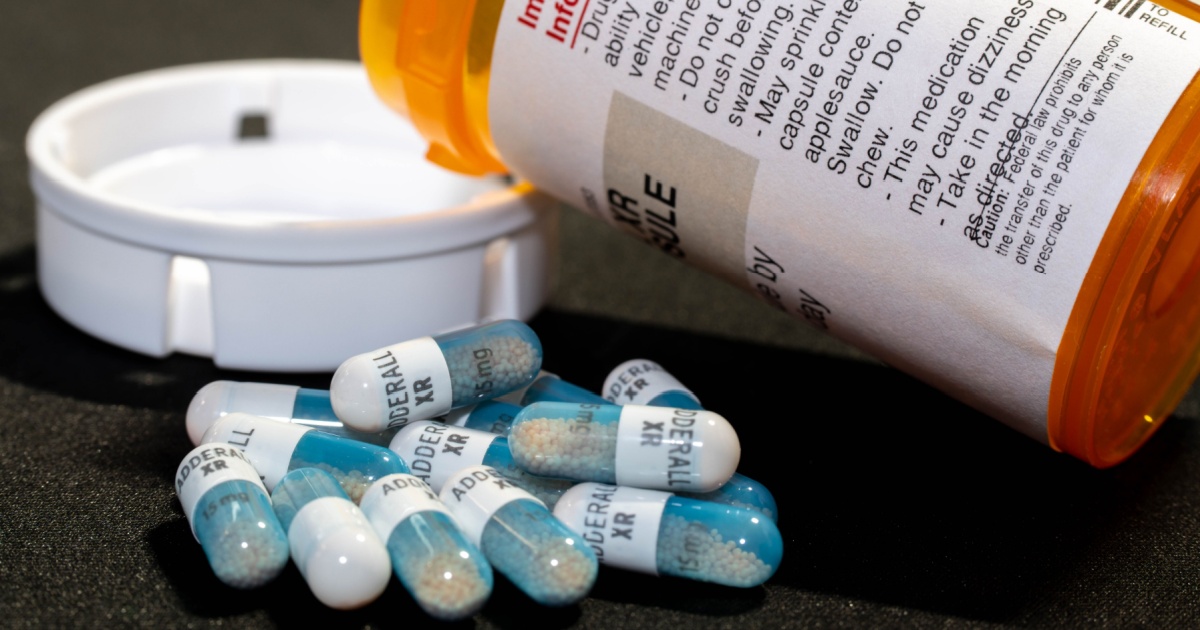In today’s fast-paced world, where productivity and efficiency are highly valued, people often resort to various methods to enhance their cognitive performance. One such method is the use of ADHD drugs, commonly prescribed for attention deficit hyperactivity disorder. These “smart” drugs are believed to enhance focus and cognitive abilities. Recent research, however, suggests that they may actually have the opposite effect. A study conducted by the University of Cambridge and the University of Melbourne reveals that these drugs can decrease productivity in individuals without ADHD, inhibiting their performance and overall effectiveness. These are the potential risks and implications of ADHD drugs when used by neurotypical individuals.
ADHD drugs: What are they for and how do they work?

ADHD drugs, such as methylphenidate (e.g., Ritalin), are specifically designed to treat attention deficit hyperactivity disorder. They work by affecting certain chemicals in the brain, such as dopamine and norepinephrine, which play a role in regulating attention, focus, and impulse control. These medications are commonly prescribed to individuals diagnosed with ADHD to help them improve their ability to concentrate and manage their symptoms effectively. (1) ADHD drugs include methylphenidate, modafinil or dextroamphetamine. They are more commonly known under brand names such as Ritalin, Adderall, Concerta, and Vyvanse. These medications are available in both immediate-release and extended-release forms. Immediate-release drugs work quickly but only last for a few hours, while extended-release medications provide a steady dose of the drug throughout the day. Again, they are typically prescribed to children diagnosed with ADHD, however, they can be used to treat other disorders as well.
Read More: 48 Bad Habits Linked to Cancer
The study: Revealing the dark side of ADHD drugs

The study conducted by the University of Cambridge and the University of Melbourne aimed to explore the effects of ADHD drugs on individuals without ADHD. In this double-blinded, randomized trial, 40 healthy participants were given one of three popular ADHD drugs (methylphenidate, modafinil, or dextroamphetamine) or a placebo. The participants were then assessed using a test that simulated complex decision-making and problem-solving tasks commonly encountered in daily life. (2) Unlike previous studies that focused on simpler cognitive tasks targeting memory or attention, this study involved computationally complex activities designed to mimic real-life challenges. Participants were presented with a knapsack optimization task, where they had to determine the best allocation of items with different weights and values to maximize the overall value of the virtual knapsack.
Implications of the study: The downside of “smart” drugs

The results of the study indicated that participants who took the ADHD drugs actually experienced small decreases in accuracy and efficiency, along with significant increases in time and effort to complete the task. This was compared to when they took the placebo. For instance, participants taking methylphenidate, often used by college students for exam preparation, took around 50% longer on average to complete the knapsack problem compared to when they were on a placebo. Furthermore, individuals who performed at a higher level in the placebo condition showed a larger decrease in performance and productivity after taking the drug. This suggests that the drugs may have a more detrimental impact on above-average performers. In terms of productivity, participants who excelled in the placebo condition often ended up in the bottom 25% when under the influence of methylphenidate.
Increased Motivation, Decreased Performance

According to Professor Peter Bossaerts from the University of Cambridge, the research suggests that these drugs do not actually make individuals “smarter.” While they may increase motivation, the exertion caused by the drugs can lead to erratic thinking, negatively affecting decision-making. The drugs may not have the desired effect on people’s minds and decision-making processes, indicating the need for further research. “Our results suggest that these drugs don’t actually make you ‘smarter’,” said Bossaerts. “Because of the dopamine the drugs induce, we expected to see increased motivation, and they do motivate one to try harder. However, we discovered that this exertion caused more erratic thinking — in ways that we could make precise because the knapsack task had been widely studied in computer science. Performance did not generally increase, so questions remain about how the drugs are affecting people’s minds and their decision making.” (3)
Read More: 40+ Weird Signs That Lead To a Cancer Diagnosis
How to naturally increase focus and attention span

The ability to concentrate in order to get work done both effectively and efficiently is necessary. With so many distractions around us all of the time, however, many of us, however, struggle to keep ourselves focused and on-task. For individuals looking to enhance their focus and attention span without relying on medication, here are several natural strategies to consider.
Things to Check:

- Establish a consistent routine: Create a structured daily routine that includes specific times dedicated to work, rest, and relaxation.
- Practice mindfulness and meditation: Engage in mindfulness exercises or meditation to improve focus and reduce distractions.
- Get regular exercise: Physical activity can help increase blood flow to the brain, improving cognitive function and attention.
- Eat a healthy diet: Yet again, nutrition matters. A nutritious diet that energizes you (and your brain!) will make it easier for you to be productive.
- Avoid excessive multitasking: Focus on one task at a time instead of trying to juggle multiple tasks simultaneously, as it can lead to decreased productivity and increased errors.
- Take regular breaks: Short breaks throughout the workday can actually improve focus and prevent mental fatigue.
- Get a good night’s sleep: When we are tired, our ability to concentrate and solve problems drastically decreases. Getting enough sleep solves that. If you struggle with insomnia, speak with your healthcare provider.
- Remove distractions: There are so many things vying for our attention every second of the day, it can make it impossible to concentrate. One of the biggest of these is our cell phones. If your phone is distracting you, remove it from the equation. Leave it in another room, put it on silent, or do whatever you need to do to ensure that you aren’t distracted by messages or social media.
- Find your ideal work setting: We are individuals with different requirements in order to focus. Some of us work better with music or background noise, while others need silence. There are people who get more done when coworking, while others need to be alone.
The Bottom Line

While ADHD drugs are beneficial for individuals diagnosed with attention deficit hyperactivity disorder, their use by neurotypical individuals may have adverse effects on productivity and overall performance. The recent study conducted by the University of Cambridge and the University of Melbourne highlights the potential risks associated with the use of these drugs in individuals without ADHD. It is important to consider natural methods for improving focus and attention span, rather than solely relying on medication. Further research is needed to fully understand the impact of ADHD drugs on cognitive function and decision-making in neurotypical individuals.
Read More: 32 Jaw-Dropping Photos Of The Human Body
Sources
- “ADHD Medicines.” Kids Health.
- “Not so smart? “Smart” drugs increase the level but decrease the quality of cognitive effort.” Science Advances. ELIZABETH BOWMAN Elizabeth Bowman, et al. January 14, 2023.
- “‘Smart’ drugs can decrease productivity in people who don’t have ADHD, study finds.” CAM

